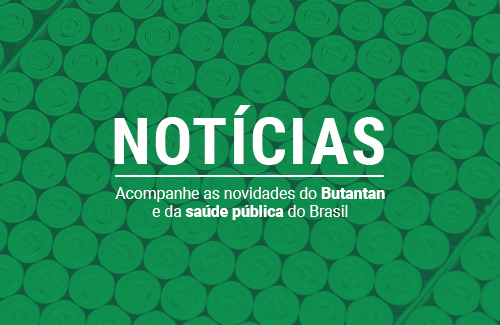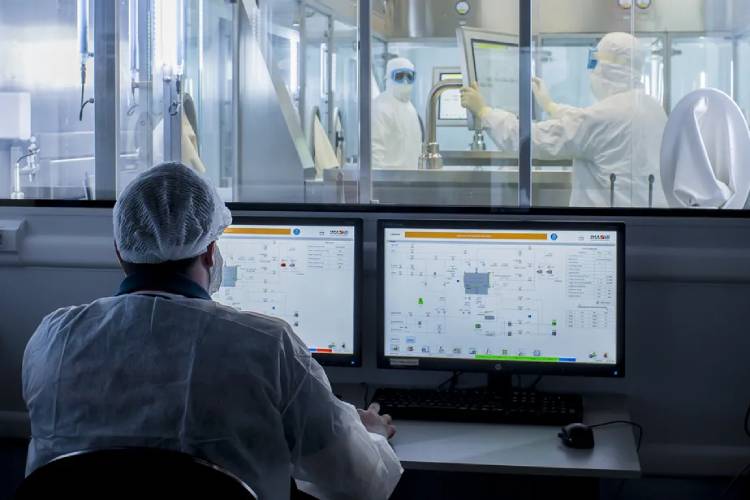



The dengue vaccine under development by the Butantan Institute (i.e. Butantan-DV) shows 79.6% overall efficacy to prevent the disease, according to initial results from the phase 3 clinical study. There were no cases of severe dengue fever or with alarm signs during the two-year follow-up of the volunteers.
The results refer to analyses conducted between February 2016 and July 2021, by 16 research centers in different regions of Brazil, including 16,235 volunteers aged 2 to 59 years, who received a single dose of the vaccine. The incidence of laboratory-confirmed symptomatic dengue cases was observed after 28 days of vaccination until the second year of follow-up of individuals. The study will continue until all participants complete five years of follow-up in 2024.
People with and without previous exposure to dengue virus were included in the research. In participants who had already been infected before the study, the efficacy was 89.2%. In those who had never contracted the disease, protection was 73.5%.
The vaccine is tetravalent (capable of protecting against the four serotypes of the virus) and the study evaluated the efficacy against the serotypes DENV-1 and DENV-2, which was 89.5% and 69.6%, respectively.

There are no efficacy data against DENV-3 and DENV-4 since these viruses did not circulate widely in the country during the analyzed period. However, phase 3 is ongoing and there are clinical development plans to generate efficacy data for these two serotypes. Previously, in phase 2, published on The Lancet Infectious Diseases, 80% of the volunteers produced antibodies against all four types.
Butantan-DV, analogous to the American vaccine TV003, is developed in partnership with the multinational pharmaceutical company MSD and with support from the U.S. National Institutes of Health (NIH). The new data reinforce the vaccine's high ability to generate immune response against dengue, already observed in earlier phases of the study.
Safety
Of the 16,235 volunteers who participated in the study, 10,259 received the vaccine. By 21 days after vaccination, only three (less than 0.1%) had serious adverse events related to the immunization.
Adverse reactions were comparable between the placebo and vaccine groups, except for expected off-site reactions, such as fever and skin irritation.
The frequency of adverse events was similar among the three age groups (2-6, 7-17 and 18-59 years) and among participants previously exposed to dengue or not.
"This data represents an important milestone for the Brazilian scientific community in the fight against dengue, which is a global public health problem. There is a great expectation that this vaccine will become a prevention measure for cases of dengue, symptomatic and severe, positively impacting the population," highlights Butantan's medical director, Fernanda Boulos.
"This is an example of technological cooperation that creates innovative solutions to help meet medical needs in health still unsolved, such as dengue fever. In this sense, Butantan's expertise in vaccines, and MSD's historical global experience in this field, come together to accelerate this development. The synergy of this public-private partnership in research and innovation shows the possibilities of cooperation in Brazil," adds Hugo Nisenbom, CEO of MSD Brazil.
Inside Data
|
PARCIAL RESULTS PHASE 3 |
People without previous infection |
People with |
General efficacy |
| Efficacy | 73,5% | 89,2% | 79,6% |
| Effcacy DENV-1 | 85,5% | 96,8% | 89,5% |
| Efficacy DENV-2 | 57,9% | 83,6% | 69,6% |
The Vaccine
In 2009, Instituto Butantan licensed from the NIH the patents and biological materials relating to the four viral strains that make up the dengue vaccine. With the data from the American institution, Butantan executed the phase 2 clinical study and in 2016 began the phase 3. In December 2018, the institute signed a partnership with the pharmaceutical company MSD for co-development and licensing of the data relating to the vaccine, in a joint action to accelerate the development and registration of the product.
Butantan's goal is to make the immunization available to the Unified Health System (SUS). After the conclusion of the clinical trial, scheduled for 2024, the final results will be submitted to the National Health Surveillance Agency (Anvisa) for evaluation. The agency will define, based on efficacy, safety, and immunogenicity data, which public will be able to benefit from the vaccine, and whether they will recommend it for incorporation into the National Immunization Program (PNI).
The candidate vaccine is composed of the four serotypes of the attenuated virus, i.e., unable to cause the disease. This is important because, when contracting one of the dengue virus types, the individual acquires immunity against that subtype, but can still be reinfected by another. Re-infection is more likely to induce severe cases of the disease. These factors increase the complexity of formulating a safe tetravalent immunizer for people who have or have not contracted dengue.
The attenuated viruses were grown in Vero cells, a widely known technique, and then the material was purified and proceeded to formulation. Then it goes through lyophilization, a process that transforms the liquid into powder, and the creation of the diluent to dilute the powder at the time of the vaccine application.
About dengue
Dengue is considered by the World Health Organization (WHO) one of the 10 greatest threats to global public health. Every year, dengue viruses cause about 400 million infections worldwide. This scenario occurs due to the wide territorial distribution of the Aedes aegypti mosquito, which covers tropical and subtropical regions. Global warming further favors the transmission of the virus to new populations since the mosquito adapts well to high temperatures. Moreover, with the existence of four serotypes and the periodic relay between them, the probability of reinfections and occurrence of severe cases of the disease increases.
In the American continent, Brazil is the country with the highest rates of cases. According to data from the Ministry of Health, in the first eight months of 2022 alone, the country recorded more than 1.3 million clinical diagnoses of dengue fever, which represents a 189-fold increase of the cases recorded in the entire year 2021. This can overload the public health system, leaving the population even more susceptible to complications from the disease.
Although most infections are asymptomatic or manifest mildly, about half a million people around the globe may experience severe symptoms and require hospitalization. The most characteristic signs of dengue fever are high fever, red spots, pain around the eyes, and muscle and joint pain. In severe cases, the so-called dengue hemorrhagic fever, heavy bleeding, sudden drop in blood pressure, and even death can occur.



